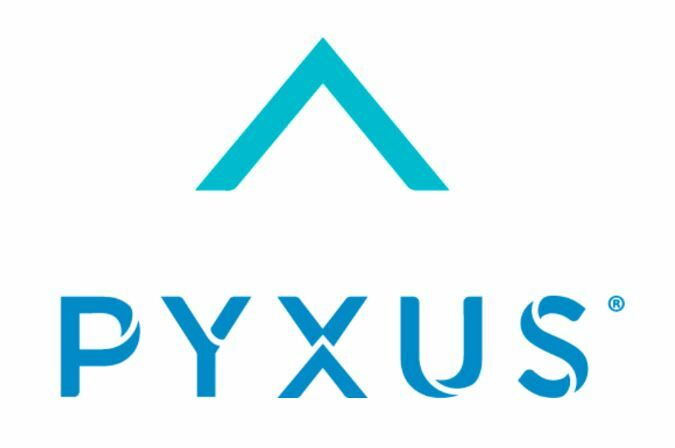
Community pharmacies across the country are delivering 38 million appointments a year in place of GPs as patients struggle to book consultations with their doctors’ surgery, new analysis has revealed. The increased workload has left staff carrying out hours of unpaid work a day, Community Pharmacy England (CPE) said. Just over 69 million walk-in health advice consultations are provided by pharmacies every year, according to the results of a recent audit by CPE.
The survey, the results of which were shared exclusively with i , pooled data from almost 4,000 community pharmacies across the country (more than a third of CPE’s membership) in June. CPE extrapolated the figures, and its analysis shows that high street chemists save the NHS at least 38 million GP appointments a year. Pharmacists carrying out consultations identify around 2.
7 million people a year needing urgent help, CPE said. “It’s a huge benefit to the NHS because a lot of the time we’re preventing these people having to go see the GP, or – if it’s more urgent – we’re escalating it into the GP or to A&E to deal with it quicker,” said Fin McCaul, managing director of Prestwich Pharmacy and CPE’s regional representative for North West England. But due to limits over the consultations for which the health service provides funding, pharmacy staff are being left to cater to millions of walk-in appointments for free every week.
“We actually save a lot more than [38 million GP appointments],” Mr McCaul explained. “That’s just from the free advice we give.” There are reportedly more than 1.
3 million consultations provided each week which fall outside the scope of NHS-funded services such as the Pharmacy First scheme introduced in January 2024 , CPE said. The number of these informal, unfunded consultations has also jumped by 50 per cent compared to 2020. It means businesses already operating at capacity are being stretched to breaking point, with staff having to spend hours of their day on unpaid work while owners inject more and more of their own money in a struggle to keep their doors open .
“We’re now seeing significantly more people outside of those paid consultations like Pharmacy First, but NHS England doesn’t pay us for any of them in any level, at all,” Mr McCaul said. “We averaged about 15 informal consultations a day in 2020, now we’re up to nearly 22 people a day. “That’s taking two hours out of my time and the team’s time that is effectively unfunded.
” Mr McCaul, who has owned his community pharmacy in Prestwich, north Manchester, since the mid 1980s, said that taking some pressure off GPs and helping more patients through NHS-funded schemes has – alongside Covid vaccinations – “been the most clinically rewarding role that I have had as a pharmacist”. And while he maintains that the additional service “is not a burden, because we’re here to help patients”, he added that the spike in informal consultations, combined with stock shortages , increased costs and the lack of a real terms pay rise for several years, has led to an “unmanageable” situation. Read Next More than 400 pharmacies closed last year and more at risk “Many of my colleagues, and myself, are trading on the breadline now,” Mr McCaul told i .
“We are probably technically insolvent, but we’re certainly not making any money running a pharmacy business, and many of us are losing money. “I spoke to one of my colleagues over the weekend who has had to put an awful lot of money back into his business just to survive. That’s just the whole funding scenario within community pharmacies.
” Mr McCaul said he, like many other pharmacists he knows, has been forced to pull from his pension fund to pay his employees, and that many more high street pharmacies will close if things continue as they are. “Like everyone else, we are looking to the Budget on Wednesday and the NHS review consultation that’s ongoing, but my concern is that people won’t survive long enough to even get those results,” he said. “When you’re topping up from your pension, when you’ve topped up from family and friends and borrowing to survive, it’s really challenging.
“It would be lovely if community pharmacies got the recognition in the Budget , but I think with the whole state of the country and the NHS it’s unclear what will happen on Wednesday, and post-Budget how long it’ll take to resolve it, even if there is a lump of money assigned to pharmacy. “We will do everything we possibly can to stay open and to survive through this, but it is survival.” He added: “We understand that the whole of the NHS is challenged with costs, but actually if we have to stop giving this free advice, there’s an awful lot more pressure that’s going to go on to GPs and to the NHS.
“So please, NHS, recognise that actually pharmacy is doing an amazing job triaging a heck of a lot of appointments that are saving time for GPs which are already under pressure as well.” The CPE audit also found that pharmacies are helping more than 4.3 million people a year who can’t access other parts of the NHS.
Lindsey Fairbrother, owner of a community pharmacy in Hatton, south Derbyshire, and CPE’s regional representative for the east and north Midlands, said it was “incredible” that pharmacies are able to increase the public’s access to healthcare, but that the fact these are free consultations “shows how hard pharmacies are working for virtually no return, which isn’t sustainable”. If more community pharmacies are therefore forced to close their doors , she added, then all of that work will “disappear” and only pile further pressure on the rest of the NHS and patients themselves. Ms Fairbrother told i that the increasing demand on pharmacies providing informal consultants means she has had to hire more staff to share the stressful workload and avoid dropping the level of service they offer .
“Because I’m often out of the picture talking to a patient one-on-one in the consultation room, what it’s meant for us as a business is that we are deliberately overstaffed, and we are therefore deliberately overcosted,” she explained. “We all know the pressures of trying to make ends meet when running a business , especially with the things that are about to come in the Budget, but we’re not going to be cutting our staff whatsoever, – even though if a really ‘on the ball’ business person looked at my business, that’d be the first thing they’d do. “We’ve just had to shoulder the increasing costs ourselves, and we’re about to shoulder the national insurance increase .
I totally agree we need to do that, we need to raise taxes because we need more money, the country is broke. But that’ll be another cost that falls on us.” Ms Fairbrother said the CPE report highlighted that pharmacies doing “ought for nought” is “no way to run a business”, adding that the representative body had for some time been telling contractors to stop offering services for free.
“But if we were to stop providing advice, where would the public go?” she said. “It’s difficult, and really it makes it a bit of an ethical dilemma when you’re being asked to help somebody and give your time up but you know that you’re not actually getting paid a penny for any of the time you’re providing.” She added: “We’ve got a pharmacy conference coming up in November and we’ve got [minister of state for care] Stephen Kinnock coming as a keynote speaker.
I might just stand up and say, ‘Stephen, we need some help. We want to provide this great service that we do and that the public recognises and trusts, but we can’t do it if we’re not here.’ “We just want to be sustainable.
” Read Next Patients face medicine delays as pharmacy crisis leaves 92% of staff 'not coping' Janet Morrison, chief executive of CPE, said community pharmacy teams help to reduce the burden on other parts of the NHS. Ms Morrison added that it is “no surprise that the public are voting with their feet in favour of community pharmacies” as they face challenges getting appointments elsewhere. “This walk-in healthcare advice has never been more important as the public struggles to access many parts of the health service, and it’s no surprise that our data shows that more and more people are relying on it,” she said.
“Unfortunately, much of this professional advice is simply not being paid for by the NHS. “Community pharmacies are under intense financial, operational and other pressures – leading to thousands of pharmacy closures in recent years – and they simply cannot continue to do work for free.”.














